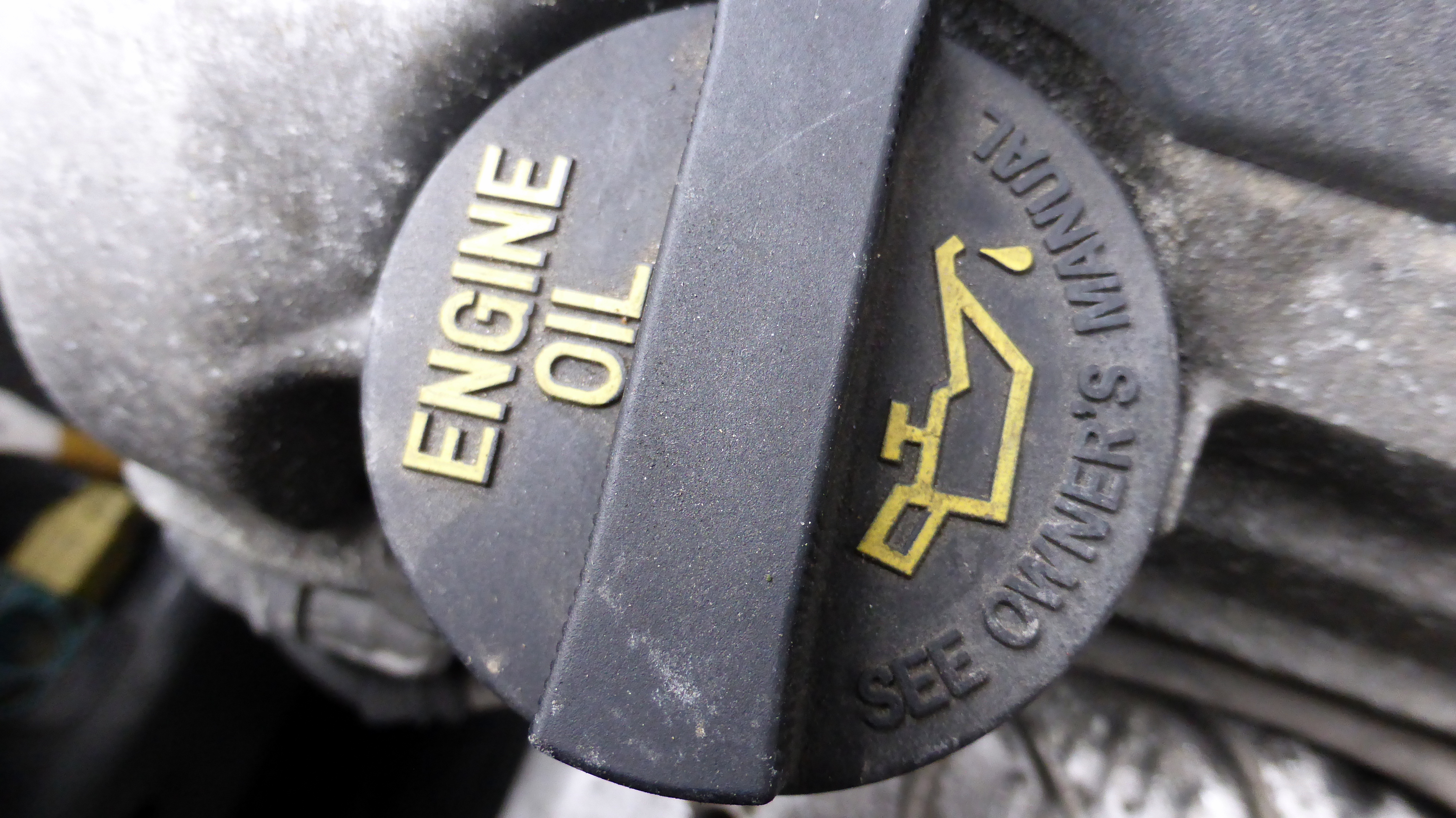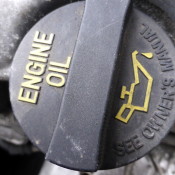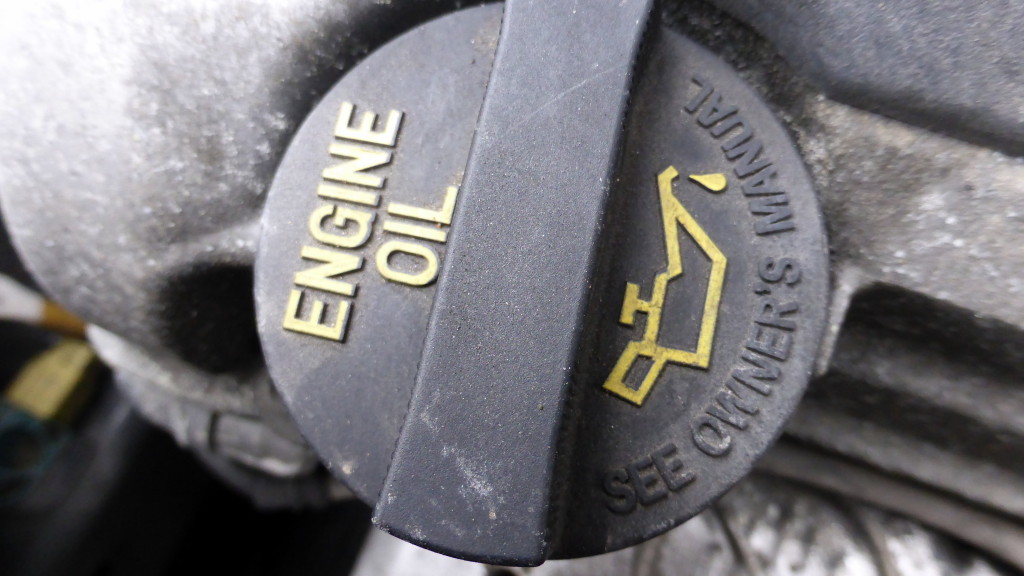
To get the most money for your car when the time comes to sell, proper maintenance goes a long way. Regular oil changes are one of the most basic and most important services you can perform on your car to prolong the life of the engine. Keep in mind that the type of oil you put in your engine is just as important as the oil change itself. Running the correct oil in your engine helps to better protect its internal components for the long run, and with a mechanically-sound engine, you’ll be able to sell your car for more!
(image from Sean MacEntee under CC BY 2.0)
You might take your car to the dealership or local lube shop for an oil change, but if you’re one of those who prefer to do the oil change yourself to save time and money, you’ve most likely had to buy your own oil and filter. If you’ve been to the auto parts store, then you’re probably aware of the many types of oil that you can buy off-the-shelf, but which one is the right oil for your engine?
The first place to look is the owner’s manual that came with your car. In the manual, you should be able to find the specifics of the oil type and viscosity that you should be running in your engine. For a newer car, following the owner’s manual is probably the better route, but as your car tends to age with higher mileage, it may be better to run a heavier oil for better protection, and to prevent leaking. Now how do you choose which oil to use? Read below for a brief breakdown on different kinds of oil.
Viscosity
One of the most confusing things about engine oil is the number on the front of the bottle. The “XW-XX” that you see refers to the viscosity of the oil. Viscosity is the oil’s resistance to flow, and the number preceding the “W” refers to the oil’s flow at 0 degrees Fahrenheit. The “W” stands for winter, so the lower the number, the thicker the oil is in the cold. In high temperatures, a higher number before the “W” is more suitable to keep the oil from becoming too thin and not providing as much protection for the engine from any kind of damage.
The number after the “W” is the oil’s viscosity, which is the oil’s resistance to thinning out. A higher number means that the oil can take more heat before thinning out. For example a 5W-30 oil will thin out faster at high temperatures than a 5W-40 oil. It is important to match the oil’s viscosity to the climate that you live in. For colder temperatures, it would be better to run a lower viscosity, but for the warm weather found in Orlando during the summer, you may want to run a higher viscosity oil to better protect your engine in higher temperatures. Refer to the owner’s manual for vehicle specifics.
Conventional Oil
What is conventional oil? This is the cheapest oil at the auto parts store, and typically lasts the shortest amount of time due to fewer additives. Conventional oil is good for those who change their oil frequently at about the 3-month or 3K-mile range.
Full-Synthetic Oil
Full-Synthetic oil is man-made to last longer in your engine. Synthetic oil is typically the most expensive, and contains many more additives to protect engine components from oil deposits. Most cars do not require the use of synthetic oil, but for high-tech engines found in performance sports cars, this is the oil to go with.
Synthetic-Blend Oil
Get the best of both worlds with a synthetic-blend oil. For a few bucks more than conventional oil, you get some of the added benefits of synthetic oil. Synthetic-blend oils protect engines better than conventional, but don’t cost nearly as much as full-synthetic oil.
High-Mileage Oil
High-mileage oil is specially formulated for engines with over 75,000 miles. Sealant conditioners are added to high-mileage oil to help protect the seals of your engine to prevent oil leaks.
Choosing the right type of oil can be a headache, but with the breakdown above, we hope your next engine oil purchase is less difficult. At Orange Buys Cars, we want to ease the pain, and get you the most money for your trade-in. We can buy your car outright, or consign to sell your car for you. We’ll get you top dollar for your car today!


